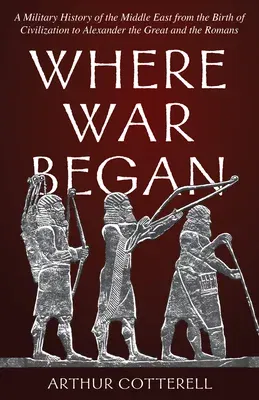Bloody fighting between rival tribes and clans has existed since the
dawn of Homo sapiens, but war as we knew it began to take the more
organized forms we recognize today in the ancient Near East, starting in
the vital region near the Tigris and Euphrates Rivers (modern Iraq) and
ultimately extending west to the Mediterranean Sea through what became
the Holy Land of the Bible, a region eventually contested by Egypt, the
Roman Empire, and others, and extending north and east into the
mountains of Persia (modern Iran). In this informed and accessible
history, Arthur Cotterell tells the story of how the story of the
development of civilization is also the story of the development of
organized warfare This story begins around 4,000 to 3,000 BC with the
Sumerians, one of the first dominant civilizations of fertile
Mesopotamia, and their wars with their neighbors. The Sumerians
eventually gave way to the Babylonians, whose period of dominance saw
rudimentary "great power" rivalries begin to form with the likes of
Egypt and the Hittites and the Battle of Kadesh (1274 BC). This period
resolved with the fall of Babylon and the rise of other powers,
ultimately the Persian Empire of Cyrus and Darius, one of the great
ancient dynasties, which battled the Greeks directly (as chronicled in
Herodotus) and indirectly as rival Persian factions battled each other
(e.g., as chronicled in Xenophon's account of the storied Ten Thousand).
In the period that followed, the Near East was dominated by Alexander
the Great, whose legendary campaigns conquered Persia and ventured east
into modern India. This era saw the refinement of the Greek hoplite
tactics that remained standard for many hundreds of years. After
Alexander the Great, and the rise of the Seleucids and Parthians where
Persians once reigned, the Roman Empire began to exert its power in the
region, especially at its colonies in Judea and Syria. Spanning some
4,000 years and drawing anecdotes and quotations from ancient sources,
Where War Began is a lively narrative of the origins of war in a region
that is still afflicted by war and that still shapes global politics.

